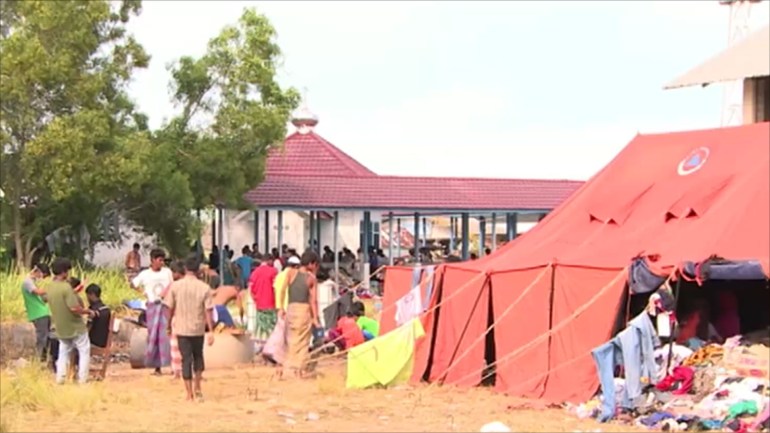The Myanmar Human Rights Network welcomed the accession of Canada and the Netherlands to Gambia, which filed a genocide case against the Rohingya minority against Myanmar before the International Court of Justice last year.
The two countries announced that they would provide support on the legal aspects of the file and on violent and rape crimes committed against the Rohingya minority.
The network said that this decision by Canada and the Netherlands would provide more experiences and resources that confirm the crimes against humanity against the Rohingya minority.
The network also called on countries such as the United States, Britain and ASEAN countries to join the lawsuit against the Myanmar government.
Tens of thousands of Rohingya live in refugee camps to escape persecution (Al-Jazeera)
Extermination due to racial discrimination
The third anniversary of the Myanmar army’s launch of a new wave of genocide and ethnic cleansing against the Rohingya Muslims came on August 25th, which is a genocide due to systematic racial discrimination against Myanmar Muslims and the government's disregard for the practices of armed ethnic groups in which 11 of the 14 provinces have been involved in complex conflicts, as well as Eight armed Buddhist organizations controlled 118 towns, according to an Anadolu Agency report.
The Myanmar researcher Maung Zarni, residing in Britain, summarized the crude contradiction in dealing with the scene, saying that "the Rohingya do not fight society and have not made hostility to the government, but rather want to live in peace, like others."
"The Buddhists in Rakhine are the ones who are fighting the central government to regain sovereignty they lost 200 years ago, but the world does not know these facts and tends to focus on Muslims," he added in a statement to Anadolu Agency.
According to former Guatemalan Foreign Minister Geert Rosenthal, who investigated UN operations in Myanmar, the treatment of Muslim minorities is inconsistent with political principles and the peace process under the constitution passed in 2010.
In the absence of any international investigation agency or media coverage and almost a complete blackout of the Internet from these areas for years, the numbers are conflicting regarding the crimes committed against them, but the Arakan Rohingya National Organization indicates "at least 360 villages were burned, 24,843 Rohingya were killed, and 24,843 Rohingya were killed." About 40 thousand more were shot. "
The organization also recorded "18 thousand and 498 cases of rape of a Rohingya woman and girl, and about 34 thousand people were thrown into fires, and about 115 thousand houses were burned."

